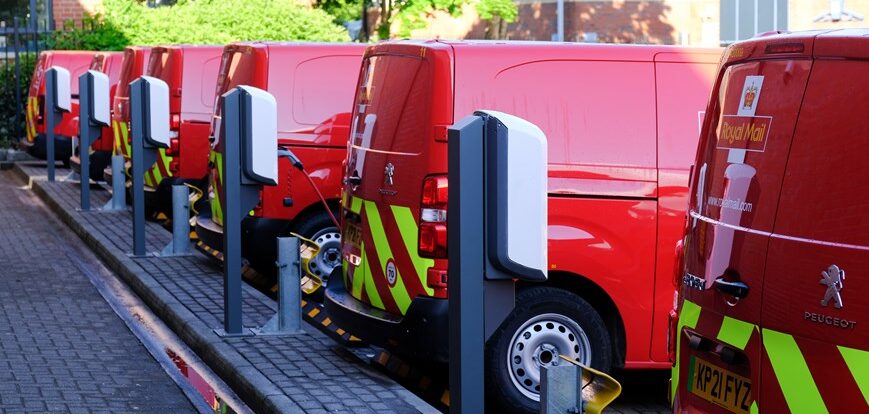Royal Mail says that as part of a continued drive to reduce emissions associated with its operations, the organization has converted the last-mile fleet of one of its Bristol delivery offices to 100% electric propulsion.
Its Bristol East Central Delivery Office, located in the city’s Easton area, has had a 23-vehicle strong fleet of diesel delivery and collection vans replaced by fully electric equivalents. Six electric charging points have also been installed on the site and the electricity powering both the office and for charging the vehicles is from 100% renewable sources.
Royal Mail says Bristol was selected due to the city’s plans for a Clean Air Zone (CAZ), which will require certain vehicles to pay a daily charge to enter its center. At present, Royal Mail says other locations across the UK are being considered for similar fleet makeovers in coming months – particularly those in places with existing CAZs, or that have plans to introduce them.
The fully electric vans have a significantly (up to 60%) larger load space than the vehicles they have replaced, giving them additional capacity to deal with growing parcel volumes. With lower maintenance requirements, the electric fleet promises more on-road time and higher levels of reliability.
The new vans can travel up to 125 miles in between charges, depending on weather and load size. As part of Royal Mail’s recent expansion of telemetry technology across its fleet, the vans will also have telemetry capabilities installed, aimed at encouraging more efficient driving techniques.
Simon Thompson, chief executive officer at Royal Mail, commented on the development, “It’s clear to me that customers increasingly want less environmentally impacting deliveries. And as a company, we believe it’s the right thing to do. We are delighted to transform Bristol East Central into the very first Royal Mail ‘all-electric’ delivery office. This is a really positive step and will help us assess the impact of these changes on both our customers and our people when compared with conventional delivery offices.”


